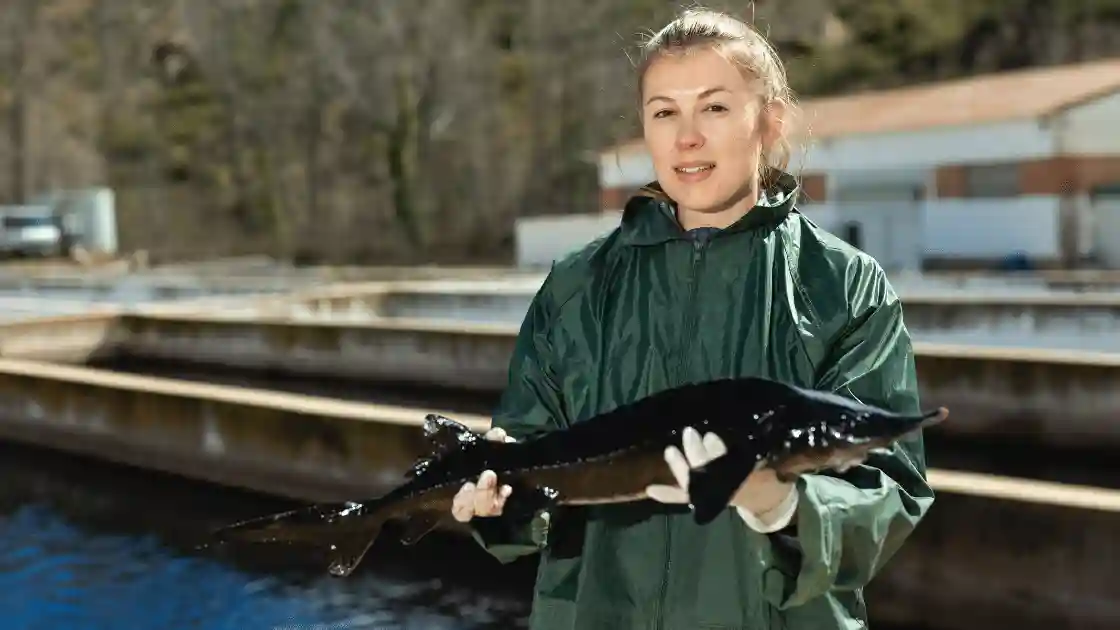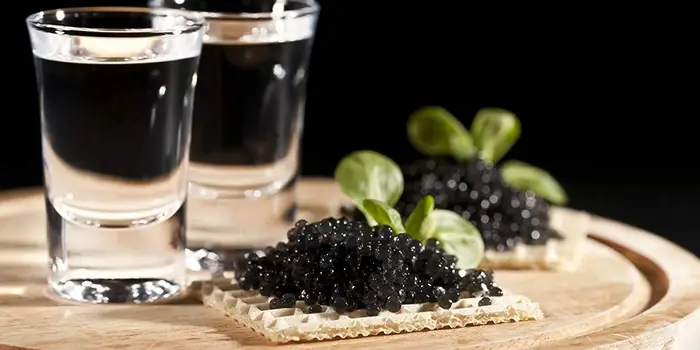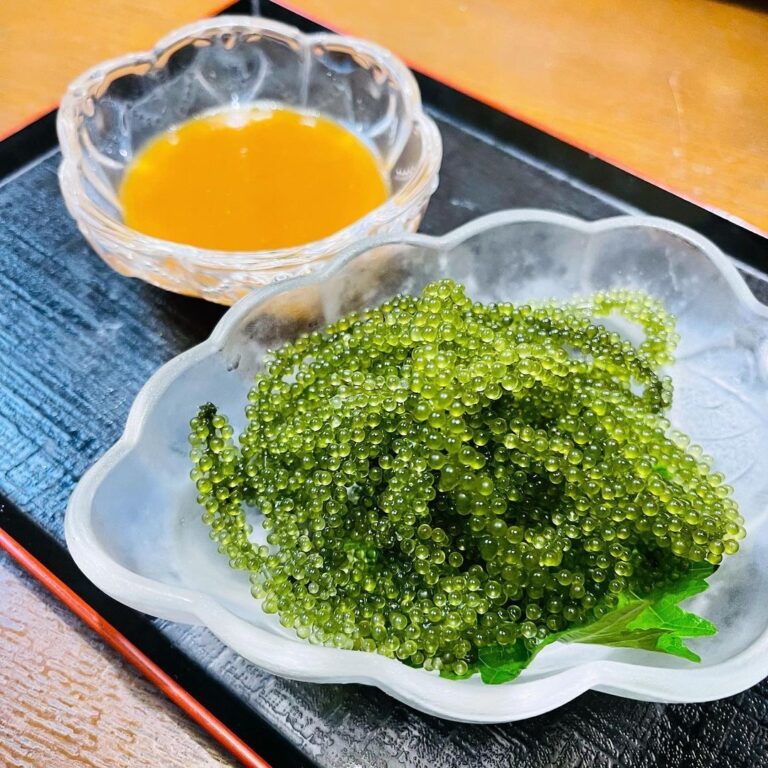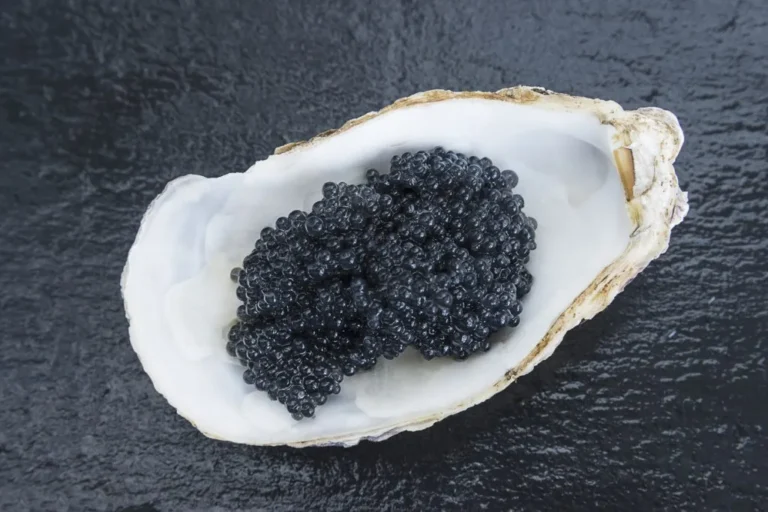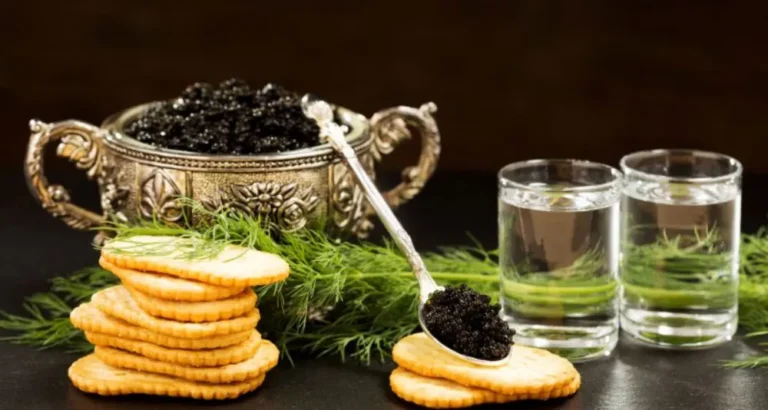South Korea Caviar Production | Sturgeon
Over the past two decades, the landscape of the global caviar market has witnessed significant shifts, with South Korea emerging as a notable producer. Korean caviar, predominantly sourced from the sustainably farmed Siberian sturgeon, stands out for its exceptional quality and rich flavor profile. This development is a testament to South Korea’s commitment to sustainable aquaculture practices and innovation in the luxury food sector.
The farms, such as Hamyang Sturgeon Aquafarm Co., Ltd., are at the forefront of this industry, employing eco-friendly methods and eschewing the use of antibiotics, thereby setting high standards in caviar harvest production.
As a result, Korean caviar has not only carved a niche in the domestic market but is also gaining recognition internationally. This growth reflects a broader trend in the gourmet food industry, where sustainability and quality are increasingly becoming key drivers of consumer preference and market expansion.
Type of Caviar produces in Korea
In South Korea, the most common type of caviar comes from the Siberian Sturgeon (Acipenser baerii). This species is well-suited to the aquaculture environment and is known for producing high-quality caviar. The Siberian Sturgeon caviar is renowned for its rich, buttery flavour and smaller, firm grains roe, making it a popular choice in both domestic and international markets.
The choice of Siberian Sturgeon for caviar production in South Korea is influenced by several factors:
- Climate Suitability: The Siberian Sturgeon, as its name suggests, is adapted to colder climates, making it suitable for farming in various regions of South Korea.
- Sustainable Farming Practices: This species is amenable to sustainable aquaculture practices, which is important given the global emphasis on environmentally responsible caviar production.
- Maturation and Production: Siberian Sturgeons have a relatively faster maturation cycle compared to other sturgeon species like Beluga, making them more viable for commercial caviar production.
- Quality and Taste: The caviar from Siberian Sturgeon is highly regarded for its quality and flavor profile, appealing to both connoisseurs and casual consumers of caviar.
The Beginning of Korean Caviar Cultivation
Reflecting on the evolution of Korea’s caviar industry over the past two decades, one can appreciate the remarkable journey it has undertaken. The inception of Korean caviar production can be traced back to a time when the global caviar market was predominantly dominated by traditional producers from the Caspian Sea region. South Korea’s entry into this market was not just an expansion of its culinary repertoire but a strategic move towards diversifying its aquaculture industry.
In the early stages, the focus was on developing sustainable farming practices for sturgeon, a critical step given the overfishing and environmental concerns that had plagued traditional caviar sources. Pioneering farms like Hamyang Sturgeon Aquafarm Co., Ltd. began with a vision to create a caviar industry that was both environmentally responsible and capable of producing caviar that met the highest international standards.
The initial challenges were significant. They ranged from mastering the intricate techniques of sturgeon farming and caviar production to navigating the complex global market dynamics of luxury food products. However, through relentless innovation, investment in research, and adherence to strict quality control, Korean caviar gradually carved out a place for itself.
Over the years, as the industry matured, Korean caviar began to gain recognition for its unique qualities. The farms honed their expertise in producing caviar with a distinct flavour profile, appealing to both domestic and international connoisseurs. This period also saw a shift in global caviar consumption patterns, with a growing emphasis on sustainability and traceability, aligning perfectly with the ethos of the Korean caviar industry.
Today, Korean caviar stands as a symbol of the country’s successful foray into the luxury food segment. It’s a testament to how innovation, coupled with a commitment to sustainability, can not only create a new market but also redefine standards within an established industry. As someone who has observed the industry’s growth over the last two decades, the rise of Korean caviar is a remarkable story of vision, perseverance, and the transformative power of sustainable practices in the luxury food industry, the wild caviar products in endanger by uncontrolled finishing and nowadays vegan caviar is an alternative.
South Korean Caviar Exports
Observed the fascinating evolution of the industry, particularly in non-traditional regions like South Korea. South Korea’s foray into caviar production, primarily from sustainably farmed Siberian sturgeon, has been a significant development in recent years.
Yes, South Korea does export caviar. The country’s entry into the caviar export market aligns with global trends towards sustainable and ethical caviar production, a response to the overfishing that has impacted traditional caviar sources. Korean caviar, known for its quality and sustainable production methods, has gradually carved a niche in the international market.
As for the specific countries to which South Korea exports caviar, the list includes but is not limited to:
- United States:
- European Countries
- Japan:
- China and Southeast Asian Countries:
Top 3 Cavair Farms
- Dinoville Aquafarm
- Details: Owned by Cheol Hong Park, Dinoville Aquafarm is known for its high-quality sturgeon caviar production. The farm raises around 3,500 sturgeon, focusing on sustainable and ethical farming practices.
- Website: While a specific website for Dinoville Aquafarm is not readily available, more information can be found through various media features.
- Almas Caviar
- Details: Owned by economist-turned-aquaculturist Han Sang-hun, Almas Caviar is recognized as South Korea’s first and only caviar farm. The farm is known for producing high-quality caviar and contributing to the development of the caviar industry in Korea.
- Website: Specific details about Almas Caviar, including a dedicated website, are limited, but more information can be found in news articles.
- Hamyang Sturgeon Aquafarm Co., Ltd
- Details: This farm is known for producing Korean caviar and is recognized for raising sturgeons under eco-friendly aquaculture practices since 2008, without the use of antibiotics or aquaculture medicine.
- Website: For more information about Hamyang Sturgeon Aquafarm Co., Ltd, you can visit SoGoodK.
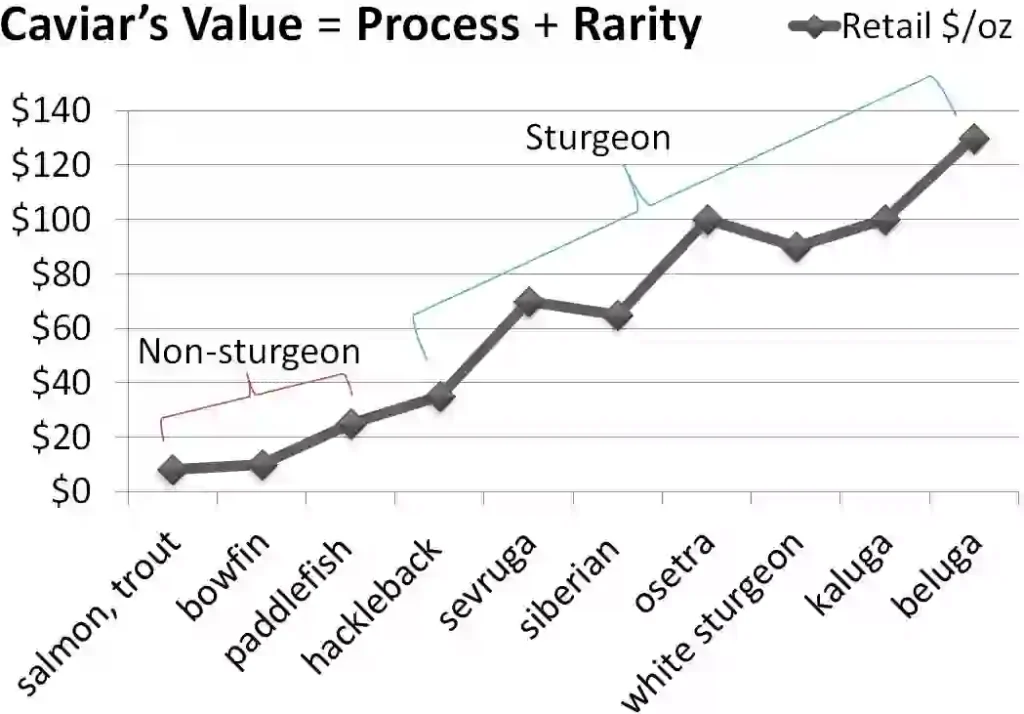
These farms are at the forefront of South Korea’s emerging caviar industry, known for their commitment to quality and sustainable practices. As the industry continues to grow, these farms are likely to play a significant role in shaping the future of caviar production in the region.
Top 5 Caviar Restaurants in Korea
- Filleter
- Description: Known for its exquisite dishes including caviar, Filleter offers a fine dining experience with a focus on quality ingredients and innovative cuisine.
- Website: Filleter – MICHELIN Guide
- Koroviar
- Description: As an Italian fine dining restaurant, Koroviar is recognized for offering high-quality caviar and a unique culinary experience.
- Website: Koroviar on TimeOut Seoul
- ILPAN
- Description: ILPAN is known for using fresh seasonal ingredients including top-quality Korean beef, lobster, and caviar, providing a rich culinary experience.
- Website: ILPAN
- Kwonsooksoo
- Description: This restaurant offers a blend of traditional and modern Korean cuisine, with dishes that include caviar, showcasing culinary innovation.
- Website: Kwonsooksoo – 50Best Discovery
- L’impasse81
- Description: A French-European restaurant in Seoul, L’impasse81 is known for its sophisticated menu and elegant setting, serving dishes with caviar.
- Website: L’impasse81 on Tripadvisor
These restaurants are celebrated for their high-quality cuisine and the luxurious experience they offer, making them top destinations for caviar enthusiasts in South Korea.
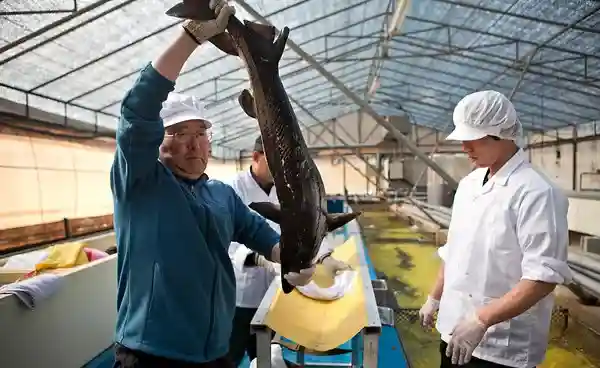
Buy Online Caviar in Korea
Here are a few online websites where people in South Korea can purchase caviar:
- SoGoodK (Korea Caviar)
- Offers premium Korean caviar, professionally produced and manufactured by Hamyang Sturgeon Aquafarm Co., Ltd.
- Website: SoGoodK – Korea Caviar
- Almas Caviar
- Specializes in producing and selling caviar, known as one of the unique domestic caviar producers in South Korea.
- Website: Almas Caviar
These websites offer a range of caviar products, catering to different preferences and needs. They provide an opportunity for consumers in South Korea to enjoy high-quality caviar conveniently through online shopping.
Price of Traditional Caviar in Korea
The pricing of Korean caviar can vary significantly depending on several factors, including the type of caviar, its quality, the producer, and market conditions. Caviar is considered a luxury product, and caviar price is influenced by various variables. Here are some general guidelines on the pricing of Korean caviar:
| Type of Caviar | Brand | Price Range per 30g |
| Almas Beluga Caviar | almas caviar | $148 |
| Almas Osetra Caviar | Almas caviar | $100 |
| Almas Sevruga Caviar | Almas caviar | $100 |
| KOREA CAVIAR 코리안 캐비어 | sogoodk │ 쏘굿케이 | $150 |
https://www.facebook.com/TestdeBelleza
https://www.instagram.com/test_debelleza
https://www.facebook.com/FaceDetector
https://www.pinterest.com/FaceShapeDetector_
https://www.instagram.com/faceshapedetector_

